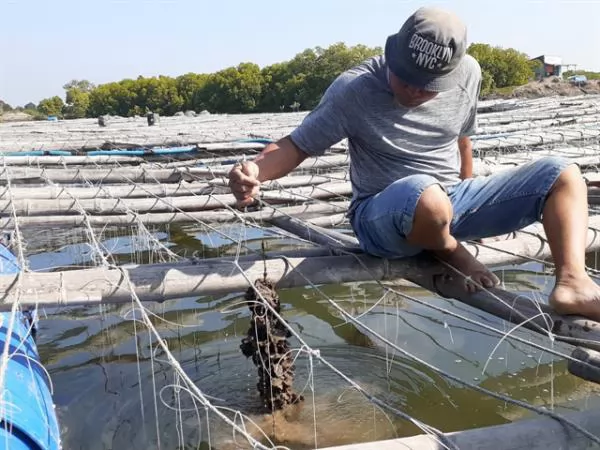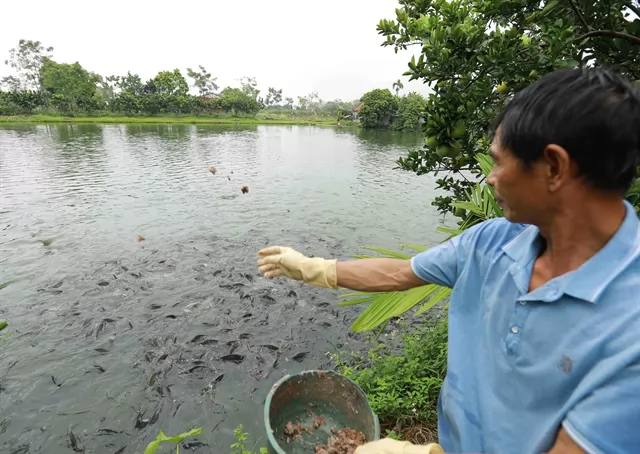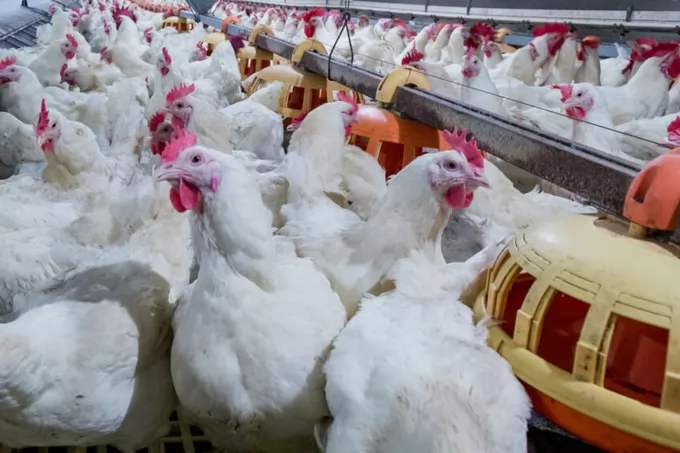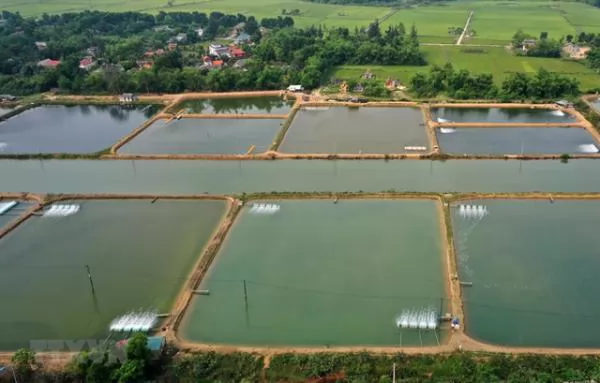Bà Rịa - Vũng Tàu farmers expand breeding of Pacific oysters

Pacific oysters are bred in floating cages in Bà Rịa-Vũng Tàu Province. — VNA/VNS Photo Hoàng Nhị
BÀ RỊA-VŨNG TÀU — More farmers in the southern province of Bà Rịa-Vũng Tàu are earning more income by breeding Pacific oysters in an environmentally friendly and sustainable way.
Pacific oyster breeding has several advantages, including a high survival rate and short breeding period.
In 2015, the province’s Agriculture Extension Centre launched the farming model to breed Pacific oysters in Vũng Tàu City’s Long Sơn Commune. The oysters reached a weight of 20 oysters per kilogramme after seven months and had a survival rate of 60 per cent.
After the success, some farmers in Long Sơn and nearby areas began to breed Pacific oysters in floating fish breeding cages.
Many oyster farmers also switched from breeding indigenous oysters to Pacific oysters. Pacific oysters can be harvested in 5.5-6.5 months, while indigenous oysters need a breeding period of 12-14 months.
The cultivation of indigenous oysters depends on natural spats (oyster seeds) in the wild, so farmers cannot have a stable yield and output.
The province has seven establishments that produce Pacific spats to supply to local farmers.
The establishments use parent Pacific oysters from the province, Quảng Ninh Province and Nha Trang City to produce quality spats.
Ngô Thị Thu Huyền, who was one of the first farmers to breed Pacific oysters in a river in Long Sơn Commune, said: “We have secured a supply of spats to use for the breeding of Pacific oysters."
Farmers sell Pacific oysters at a price of VNĐ20,000-25,000 (US$0.9-1.1) a kilogramme.
The province’s Pacific oysters are sold in Bà Rịa-Vũng Tàu, HCM City, and other provinces and cities.
Pacific oyster farming does not requires high production costs as they eat natural food in the water. Farmers only need to make floating cages and buy spats attached to hard substrates.
Farmers also do not use any chemicals to breed Pacific oysters.
Breeding of Pacific oysters has developed well in Vũng Tàu City, Long Điền District and Phú Mỹ Town.
The province has about 120 households breeding Pacific oysters, according to the province’s Fisheries Sub-department.
The households harvest a total of about 2,000 tonnes of Pacific oysters a year.
More farmers in the province are using oyster shells as hard environmentally friendly substrates to raise Pacific oysters.
Nguyễn Văn Nhất, who has switched from breeding indigenous oysters to Pacific oysters in Vũng Tàu City, said oyster shells used as hard substrates to breed Pacific oysters ensure good quality.
After harvesting, the substrates are left to decompose and do not cause pollution, he said.
Nguyễn Hữu Thi, head of the province's Fisheries Sub-department’s aquaculture management division, said the new farming model has improved the income of farmers. — VNS
Maybe you are interested

Ba Vì District restructures agriculture production to increase income for farmers
Carrying out the agricultural restructuring programme, the district's Party committee and government have focused...

US poultry industry projections, state ban on cultivated chicken, new funding, lice findings
The US Department of Agriculture (USDA) has released long-term projections for the nation's poultry industry, showing a very strong road ahead.

Long An breeds brackish-water shrimp
LONG AN — The Cửu Long (Mekong) Delta province of Long An plans to invest more than VNĐ1.24 trillion (US$53 million) to develop brackish water shrimp cultivation in the 2020-25 period, according to its Department of Agriculture and Rural Development.





